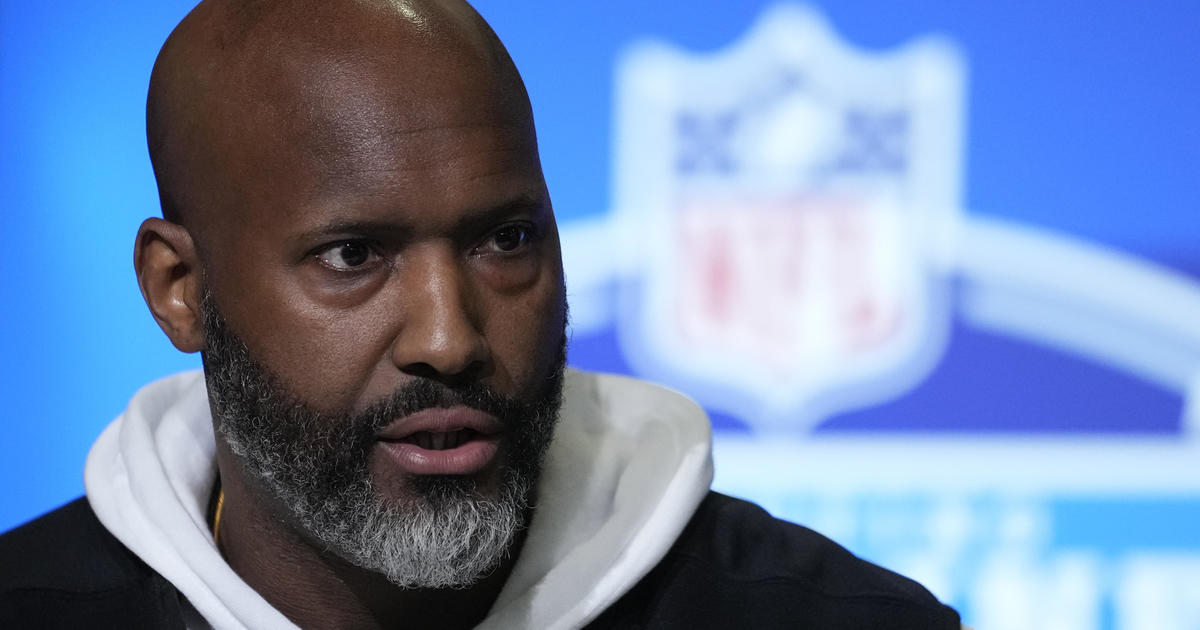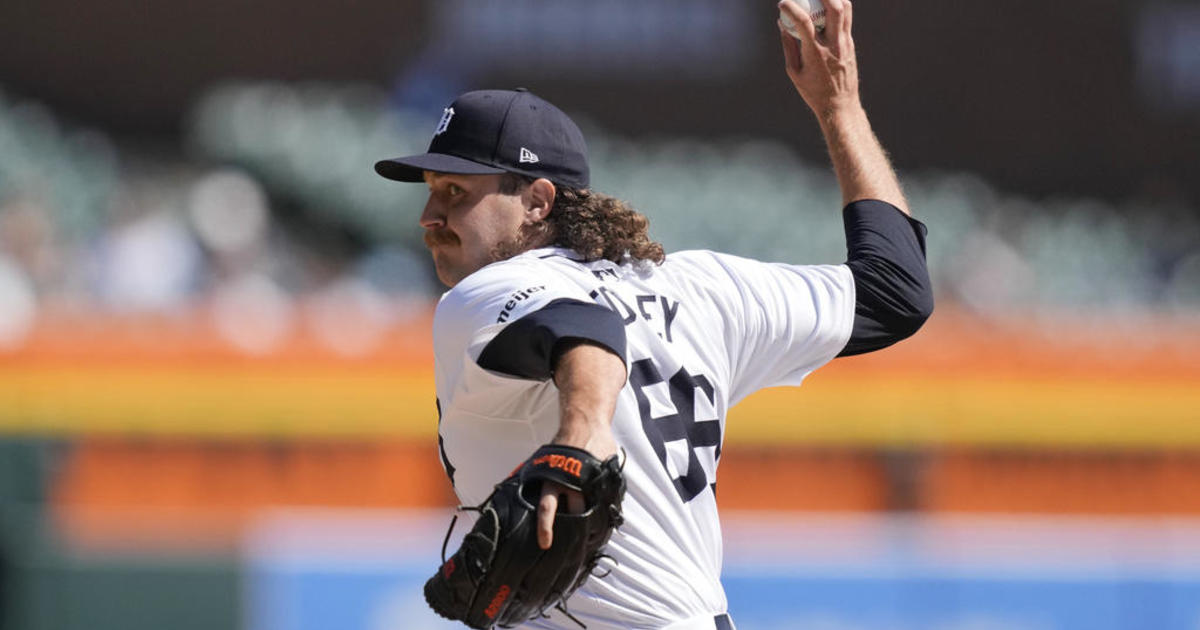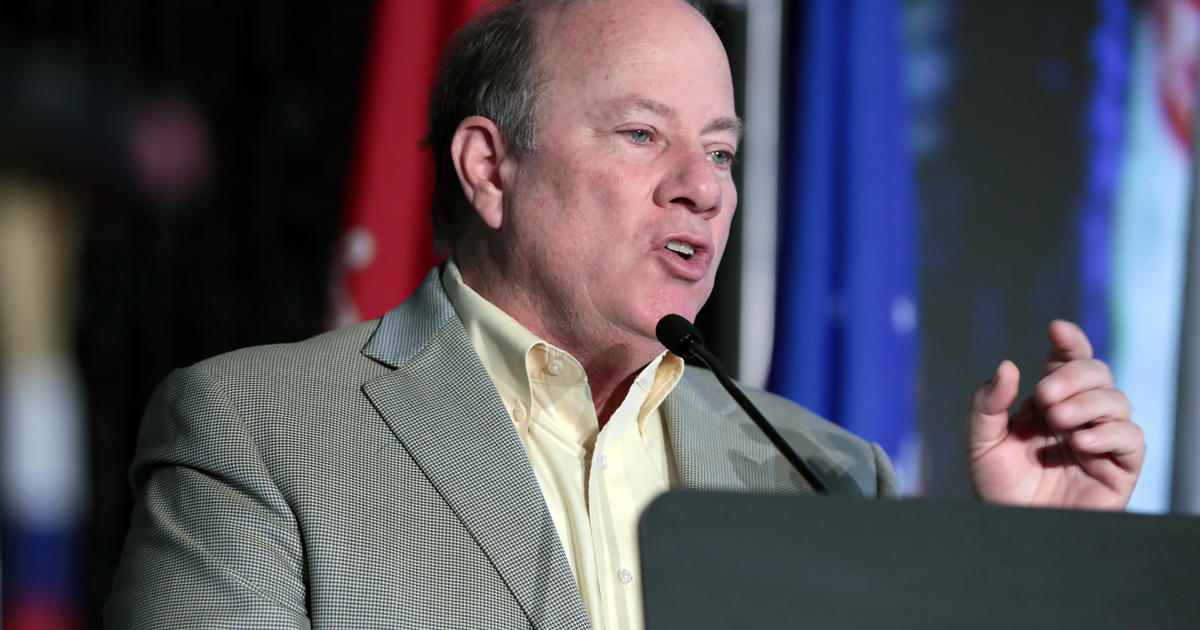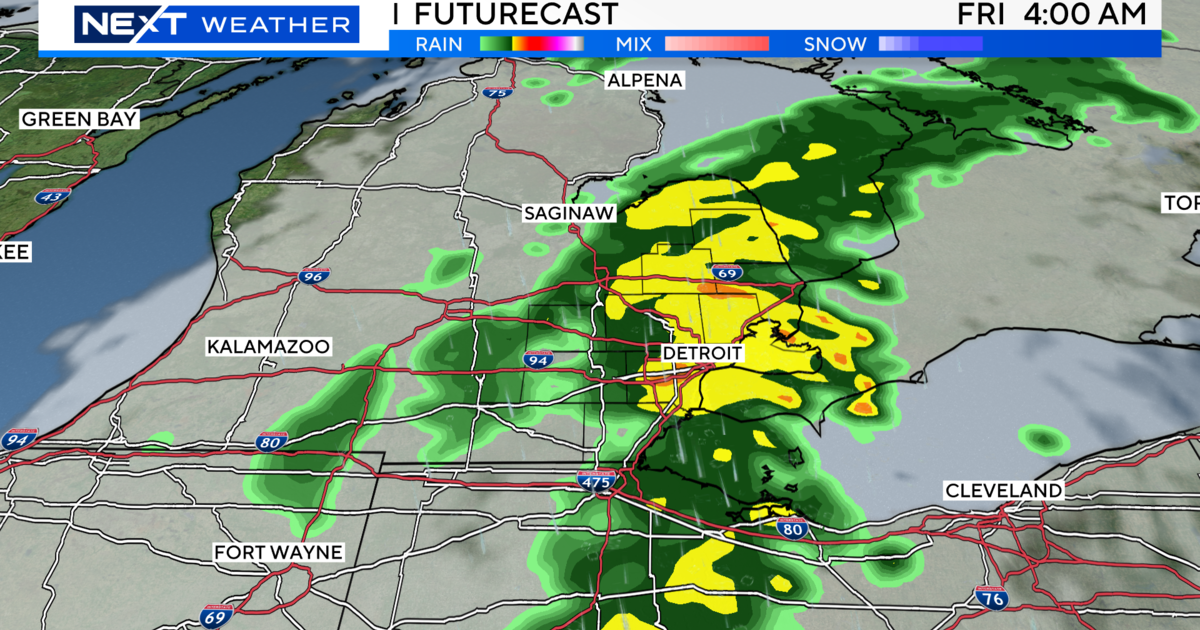Triple Crown Or Trout? AL MVP Debate A Hot Topic
MIKE FITZPATRICK,AP Sports Writer
Miguel Cabrera has his Triple Crown. MVP award, maybe not.
Hold on, now. How could that be?
Mike Trout, that's how.
It's the hottest debate in baseball, seemingly pitting old-school traditionalists against new-age number crunchers in a bench-clearing shouting match over what constitutes "valuable."
At stake is the American League's Most Valuable Player award, perhaps the game's top individual prize.
Cabrera capped an extraordinary season Wednesday night by becoming the first Triple Crown winner in the majors since Boston's Carl Yastrzemski in 1967. The Detroit Tigers' slugger led the league with a .330 batting average, 44 homers and 139 RBIs — the standard statistical categories by which excellence was commonly judged for the better part of the past century.
"If he's not the MVP then there's no such thing," Tigers manager Jim Leyland said.
Trout, however, made some history of his own. Called up from the minors three weeks into the season, the Los Angeles Angels' rookie quickly became a never-before-seen force prior to his 21st birthday.
Possessing a unique combination of skills in the concrete body of a running back, the dynamic kid from New Jersey did it all — hitting home runs and taking them away with highlight-reel catches high above the center-field fence.
Trout batted .326, second to Cabrera, with 30 homers and 83 RBIs. He also led the majors with 49 stolen bases (in 54 attempts) and 129 runs — 20 more than Cabrera in 22 fewer games. The slumping Angels were 6-14 when they brought up Trout and went 83-59 the rest of the way.
The first big league rookie to reach 30 homers and 40 steals in one season and the youngest player with a 30-30 campaign, Trout struck out 41 more times than Cabrera but committed only four errors in the outfield. Cabrera had 13 errors after unselfishly switching back to third base when the Tigers signed first baseman Prince Fielder last winter.
"Divide it in half," Yankees manager Joe Girardi said. "They both had sensational years."
That would be too easy. The hard part is making a pick.
For anyone who thought winning the Triple Crown would automatically anoint Cabrera the MVP, take note of this: There have been nine Triple Crown seasons since the MVP award was introduced for each league in 1931. Four times, the Triple Crown winner was beaten out for MVP by a player on a pennant winner.
Chuck Klein of the Philadelphia Phillies lost to New York Giants pitcher Carl Hubbell in 1933. Yankees slugger Lou Gehrig was topped by Detroit catcher Mickey Cochrane the following year. And then Boston's Ted Williams, unpopular with certain writers, fell short to Yankees second baseman Joe Gordon (1942) and center fielder Joe DiMaggio (1947).
At the center of the argument this year is a modern calculation called WAR (Wins Above Replacement), a figure derived from an assortment of other stats. WAR is designed to go deeper than the conventional numbers in measuring a player's all-around contribution to team success.
A worthwhile endeavor for sure, though some think the formula is flawed.
Leyland, for example, bemoaned that WAR doesn't emphasize RBIs enough. Others believe it's the most complete and accurate appraisal of a player's true value.
Trout finished with a WAR number of 10.7, best in the majors, according to baseball-reference.com. Cabrera was at 6.9, fourth in the American League.
The discrepancy is almost ironic, considering how the debate sometimes falls along generational lines. Trout's sizable advantage, of course, is a result of his vastly superior defense and baserunning — both traditional fundamentals long held in high regard by baseball's old guard.
With reporters everywhere asking for opinions as Cabrera chased the Triple Crown, it seemed most managers and players favored Cabrera for MVP. Front-office types often pointed to Trout. Tigers teammates wore T-shirts touting their guy.
In the end, the only people with the power to decide it are the 28 members of the Baseball Writers' Association of America who have a vote. And if recent history holds a clue, they might lean toward Cabrera more because he powered the Tigers to an AL Central title than the fact that he ended the longest Triple Crown drought in baseball history.
"The Triple Crown is obviously a historic achievement, but whether Cabrera gets it or not shouldn't impact his standing in the MVP race," Mark Feinsand of the New York Daily News, who has an AL MVP vote, said early this week.
"The fact that he's led the Tigers to the postseason with a monster September should make him a slight favorite over Trout, though Trout will certainly still have plenty of support for his incredible year. I think Detroit's late-season surge will be a bigger factor if Cabrera wins the MVP than his run at the Triple Crown."
Trout's team made a second-half charge but missed the playoffs and finished third in the AL West. Still, the Angels' final record was one game better than Detroit's.
And while Cabrera merits credit for leading his club to the playoffs, it seems unfair to punish Trout for simply playing in a tougher division.
That may not matter to voters, though.
Setting aside the strike-shortened season of 1994 when the postseason was canceled, the only time in the last 20 years that the AL MVP didn't come from a playoff team was 2003, when Alex Rodriguez won with the last-place Texas Rangers.
The trend hasn't been as consistent in the National League, but the point remains valid.
What's most amazing is this: After fans waited 45 years to see a Triple Crown winner, there's a legitimate argument about whether that player deserves the MVP award — even though Cabrera all but carried his team into the playoffs.
Never imagined that could happen.
That's how good Trout has been. And that's how far sabermetrics have come.
"I don't know, man. It's a good race," Cabrera said.
Expect him to win when balloting is announced in November. But the pick here is Trout, by a tiny sliver. He does everything well, no flaws in his game.
What's more valuable than that?
___
A look at the other big awards:
NL MVP: Worthy contenders include Cardinals catcher Yadier Molina, Pirates center fielder Andrew McCutchen and Milwaukee slugger Ryan Braun, last year's winner. The nod goes to Giants catcher and NL batting champion Buster Posey, who turned it on in the second half with All-Star teammate Melky Cabrera suspended for a positive drug test.
AL Cy Young: Another close call. This one goes to Tampa Bay lefty David Price, who barely beats out reigning MVP and Cy Young winner Justin Verlander in part because of the stiffer competition Price faces in the AL East. Rays closer Fernando Rodney is third.
NL Cy Young: One more milestone in the feel-good story that is R.A. Dickey's winding road to stardom with the New York Mets. Dickey becomes the first knuckleballer to win a Cy Young Award, a thrill he would share with all his ol' mentors: Phil Niekro, Tim Wakefield, Charlie Hough and the rest. Nationals ace Gio Gonzalez comes in second and Braves closer Craig Kimbrel third.
AL Rookie of the Year: If not for Trout, this would be an interesting race featuring Cuban outfielder Yoenis Cespedes of the Oakland Athletics and Japanese pitcher Yu Darvish from the Texas Rangers. Trout is a runaway, though.
NL Rookie of the Year: It's not just hype. A big September carries teenage phenom Bryce Harper of the Washington Nationals past Arizona pitcher Wade Miley and Cincinnati slugger Todd Frazier.
AL Manager of the Year: Bob Melvin in Oakland edges Baltimore's Buck Showalter. Both did an incredible job.
NL Manager of the Year: Davey Johnson, Washington Nationals.
___
AP Sports Writers Ronald Blum and Dave Skretta contributed to this report.
(© Copyright 2012 The Associated Press. All Rights Reserved. This material may not be published, broadcast, rewritten or redistributed.)



